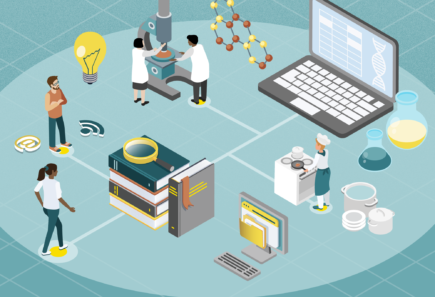Sustainable proteins from novel sources (Next Generation Proteins for a Greener Tomorrow)
Webinar description
Although alternative proteins overall offer a significantly more sustainable option compared to traditional meat and dairy, different types of alternative proteins have varying environmental impacts. Fermentation, our familiar friend from bread and beer, is fermenting a new wave in food: sustainable, protein-packed alternatives! Their magic lies in efficiency. Compared to traditional animal agriculture, fermentation requires a fraction of land and water, slashing environmental impact.
The future holds exciting possibilities for this innovative approach to providing nutritious and environmentally friendly protein sources. The exciting world of fermentation-enabled food proteins offers a diverse range of ingredient options, both for the microbes themselves (yeast, algae, fungi, etc) and the nutrients they feed on (sugars, lipids, starches, etc). And it’s not just about saving the planet. Scientists can use fermentation to craft proteins with specific nutritional needs in mind, whether it’s boosting Omega-3s or tailoring amino acid profiles. And unlike livestock, fermentation scales rapidly, meeting the demands of a growing population without straining resources.
This isn’t just about replicating existing food. Fermentation unlocks a world of possibilities: steaks grown from fungi, lab-made dairy with perfect consistency, and endless variations of delicious, nutritious protein sources. As we will discuss in this webinar, challenges remain. Cost and regulation are hurdles to overcome. But the potential is undeniable. Fermentation-enabled proteins are poised to transform our food system, offering a sustainable, efficient, and delicious path to a protein-secure future.
This is a free-to-attend webinar. Attendees will have the opportunity to hear from industry experts as well as interact through Q&A sessions
Meet the speakers

Adam Leman, Ph.D.
LEAD SCIENTIST, FERMENTATION
THE GOOD FOOD INSTITUTE
Adam is a Lead Scientist, Fermentation at GFI and is focused on the development of biomass fermentation and precision fermentation biotechnology for food protein. He earned a B.S. in Molecular Genetics from the University of Rochester and a Ph.D. from Drexel University College of Medicine in Molecular Biology. Adam’s postdoctoral studies concentrated on fungal genetics and systems biology. During his time in biotech, Adam implemented gene expression analyses in microbial, agtech, and human health studies to better characterize these systems and offer a deeper understanding for strain development and process improvement.




